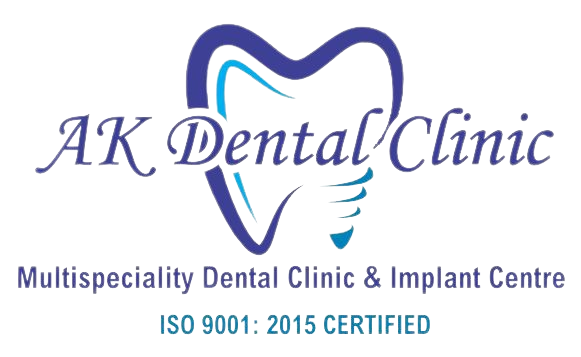What is the difference between scaling and deep scaling

Maintaining healthy teeth and gums requires frequent dental cleanings. Scaling and polishing are part of a regular cleaning routine and aid in removing plaque and tartar. AK dental clinic in Vile Parle West offers two types of cleaning: scaling and deep cleaning. While both are crucial to good dental hygiene, they work slightly differently. Continue reading to know about these two procedures thoroughly.
What Is Scaling?
Plaque, tartar, and other deposits are removed from teeth above the gum line during a dental procedure called scaling. An ultrasonic scaler are used in the procedure. You should get regular scaling cleanings every six months to keep your teeth and gums in good shape.
6-Monthly Cleaning: Routine Scaling And Polishing
As part of your regular dental care, you should have your teeth scaled and polished. Plaque and tartar accumulation on teeth can be removed, and teeth can be polished to improve their appearance and feel. This procedure should be repeated every six months to maintain healthy teeth and gums.
What Is Deep Cleaning?
In dental care, deep cleaning is a step above simple scaling. Scaling and root planing are two steps in a deep cleaning process. Scaling can remove plaque and tartar from the surface of the teeth above the gum line. Root planing can remove plaque and tartar below the gum line. A local anesthetic may be necessary to ensure the patient’s comfort during the surgery.
What Type Of Cleaning Do I Need?
The health of your teeth and gums will determine the best cleaning method for you. Scaling and polishing twice yearly should be sufficient if your teeth and gums are in good shape. But if you have any of these issues, a thorough cleaning may be in order:
- Gums that look red or swollen
- Gums that bleed
- Persistent foul breath
- Receding Gums
- Loss of alveolar bone
Deep periodontal pockets measuring more than 3 mm
Pros Of Deep Cleaning
The advantages of thorough cleaning are manifold. These include the following:
- Defending against gum disease
- Stopping tooth decay and loss
- Beneficial effects on overall oral health and breath freshening
- Cleaning the teeth exteriors
Red Or Swollen Gums
Red and puffy gums could be an indication of gum disease. Inflammation and infection of the gums are brought on by accumulating plaque and tartar along the gum line. A thorough cleaning can eliminate this accumulation and protect the gums and teeth from additional harm.
Bleeding Gums
You may have gum disease if your gums bleed when you brush or floss. Plaque and tartar accumulation can be removed during deep cleaning, stopping the bleeding and protecting the gums and teeth from future harm.
Chronic Bad Breath
Several things might contribute to chronic bad breath, including gum disease and a lack of proper dental care. The accumulation of plaque and tartar, which cause foul breath, can be removed through deep cleaning. It will also enhance the dental health of the patient as a whole.
Gum Recession
When gum tissue recedes, it reveals the tooth roots, a condition known as gum recession. Untreated Gum Disease is the root cause of this problem, which can result in the loss of teeth. A thorough cleaning is necessary to stop the progression of gum disease and protect the gums and teeth.
Bone Loss Around The Teeth
Another symptom of gum disease is the loss of bone surrounding the teeth. It is possible that a thorough cleaning will help remove the plaque and tartar accumulation that is the root cause of the bone loss and protect the gums and teeth from additional injury.
Periodontal Pockets Over Three Millimeters
When gum tissue recedes, it leaves spaces between the teeth and gums, called periodontal pockets. Leaving these spaces untreated might cause infection and eventual tooth loss. The periodontal pockets can be reduced or eliminated with a deep cleaning, protecting the gums and teeth from future damage.
Is Deep Cleaning Painful?
While a thorough cleaning may be uncomfortable, it shouldn’t hurt. Dentists can assist patients to feel more at ease during procedures by numbing the affected area with local anesthetic and employing other comfort measures.
When Should I Call The Doctor?
Call a dental clinic Vile Parle Mumbai immediately if you develop any of these signs and symptoms:
- Gums that bleed
- Swelling in gums
- Loss of gum tissue
- Persistent foul breath
- Sensitive teeth
- Dislodged teeth
- Mobile teeth
How Many Dental Appointments Will I Need For Tooth Scaling And Polishing?
One dentist visit at AK Dental Clinic is sufficient for regular scaling and polishing. However, a thorough cleaning may necessitate more than one visit to the dentist, depending on the severity of the plaque and tartar accumulation.
You Should Call Your Dentist If You Have Signs Of Gum Disease, Such As:
Millions of individuals throughout the world deal with gum disease. If not addressed, it can destroy gum tissue and the bone, which anchors the teeth, eventually resulting in tooth loss. Call your dentist immediately if you experience gum inflammation or bleeding, persistent bad breath, tooth sensitivity, gum recession, or tooth loss. Treating gum disease early on can stop it before it causes any significant issues.
Teeth Cleaning Services In Mumbai, Vile Parle
If you’re looking for a dentist in Vile Parle West, visit AK Dental Clinic. Professional scaling and polishing services are just the beginning of what our skilled dentists offer. Regarding our patients’ oral health, we only trust in the most cutting-edge tools and procedures.
Contact Us Today For A Brighter, Healthier Dental Future
Contact AK dental clinic in Vile Parle West immediately if you need professional teeth cleaning. If you have any questions or would like to arrange an appointment, please don’t hesitate to contact our helpful team. Our mission is to improve our patients’ oral health via comprehensive dental care.
About Author

Dr. Kushal N. Gandhi is the founder of AK Dental Clinic and a highly skilled dental surgeon with over 10 years of experience. He completed his undergraduate studies at Terna Dental College and earned a postgraduate degree (MDS) in Prosthodontics and Oral Implantology from MGM Dental College, Mumbai. Specializing in digital smile designing, laminates and veneers, implant dentistry, Basal implants with teeth in 72 hours, extractions, full mouth rehabilitation, and dentures.
Dr. Gandhi is a life member of the Indian Prosthodontic Society (IPS), the Indian Society of Oral Implantologists (ISOI), and the Digital Dentistry Society (Switzerland).
ENQUIRE NOW
For more more information contact us

